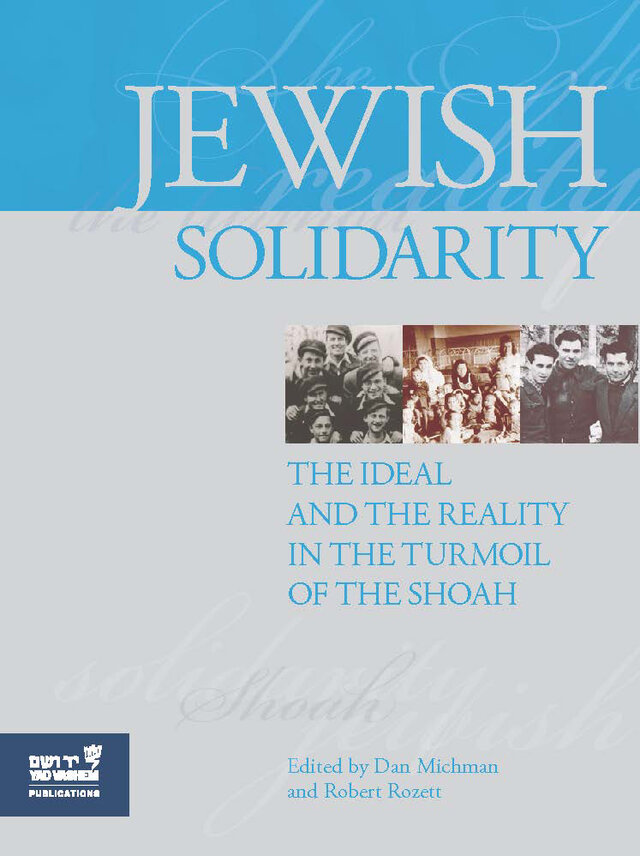
New Peer-Reviewed Publication
The Jewish traditional ideal of Kol Yisrael Arevim Zeh Lazeh („all of Israel is responsible for one another“) may not have predominated during the Holocaust, but neither did it wholly cease to exist. The essays in the newly published peer-reviewed volume Jewish Solidarity: The Ideal and the Reality in the Turmoil of the Shoah demonstrate that solidarity during the Holocaust is a multifaceted, multilayered issue replete with complexities and shadings that reflect the diversity of Jewishness and Jewish existence, as well as the unprecedented dire situations that challenged it. Instances of Jewish solidarity can be found on different levels – international, national, community, family, and others.
As a social study of the extreme situation, the contribution by IGdJ Director Dr. Kim Wünschmann examines dynamics of cohesion and conflict among Jewish prisoners in the prewar concentration camps. How did prisoners deal with the quarrels and fights that arose among them? How did they try to resolve arguments? And how could they get along with each other in the camps’ climate of violence, where scrambling for the limited resources was the order of the day and where survival often came at the expense of filching from fellow prisoners?
Edited by Dan Michman and Robert Rozett, the volume is published by Yad Vashem. It is available in the IGdJ library. A first review by Alex Grobman appeared on JewishPress.com
Picture: Yad Vashem


